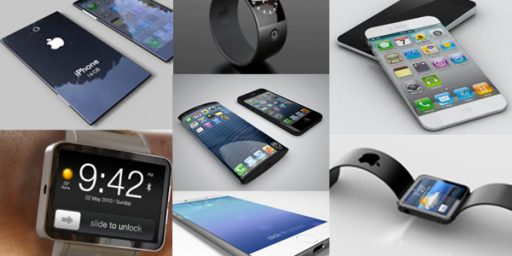Google Looking To Strike Deals To Air Cable Content Online?
In another sign of the evolution of the “television” industry, Google is apparently talking to cable networks about making their content available online:
If Google has its way, you might someday get cable television the same way you get Gmail: through any ordinary Internet connection.
Foreshadowing a new challenge to entrenched cable and satellite providers, Google is one of several technology giants trying to license TV channels for an Internet cable service, according to people with direct knowledge of the company’s efforts.
No deals are imminent. But Google’s recent meetings with major media companies that own channels are a sign of the newfound race to sell cablelike services via the Internet, creating an alternative to the current television packages that 100 million American households buy from companies like Comcast and Time Warner Cable.
Intel is hard at work on one such service and companies like Sony and Microsoft have previously shown interest in the same idea, called an “over the top” service because the channels would ride on top of existing broadband connections. They need support from the channel owners, though, and so far that has been tepid.
Google, which also owns YouTube, the world’s largest online video site, declined to comment on its television interest. But by instigating conversations with channel owners about a service that would compete with the likes of Comcast, the company is taking a different tack than its rival Apple, which has been trying to collaborate with both channel owners and their distributors on a TV offering.
“Google feels the need to beat Apple to the punch,” said one of the people with direct knowledge of the meetings, who like the others interviewed spoke on condition of anonymity.
Apple’s thinking, according to these people, is that any next-generation television service must be set up in partnership with existing distributors, in part for quality assurance reasons. A future Apple service could include a user-friendly interface layered on top of Time Warner Cable or Cablevision’s channel lineup. “Apple’s working within our current ecosystem,” one of the people said.
What Google and Intel, and probably others, have in mind is more disruptive and more difficult. One person involved in the talks with Google cautioned that the company might end up just selling a library of TV shows, the way Netflix, Amazon and Hulu already do. But others said that Google has pitched an easy-to-use subscription service that would stream a bundle of live channels as well as on-demand shows, replacing the cable bundles that most households now purchase.
If Google is looking at the more revolutionary approach, it’s not going to be easy to pull off:
Intel is trying to create a similar over-the-top service, but it has run into roadblocks set up by Time Warner Cable and other incumbent television distributors. These include contracts between existing distributors and some channel owners that prohibit the channels from being licensed to new competitors like Intel. An Intel spokesman declined to comment on Tuesday.
Another challenge involves channel owners like the Walt Disney Company and Viacom, who could stand to benefit or suffer greatly from the potential service, depending on how it is developed. Some owners doubt that there is much of a market for cable via the Internet in the first place, and they are content with the three methods of distribution they have today: cable companies like Comcast, the satellite providers DirecTV and Dish Network, and the fiber optic providers Verizon FiOS and AT&T U-verse.
But if Intel, Google or another firm succeeds in selling a cablelike bundle, some of those existing distributors would almost certainly start doing the same thing. That would represent a sea change for the cable industry, whose firms have historically stayed with their own regional footprints and avoided direct competition with each other.
It’s a risky venture, but if it succeeds then Google, and Intel and whatever companies end up following them, will end up creating a completely new market for receiving entertainment, and its one that will make it a lot easier to subscribe to individual channels and shows a la carte than it is right now, and at that point the idea of a television “network” will start to seem quite meaningless to most people.






Doubt it will happen. -because the content providers don’t want it to happen. IN the end, content is king.
How does this affect folks like me who use the same provider for cable TV and internet service? Seems to be a conflict. Would my provider slow down internet speed to prevent streaming?
I don’t see Comcast and Time Warner just lying down and letting their internet customers access Google TV.